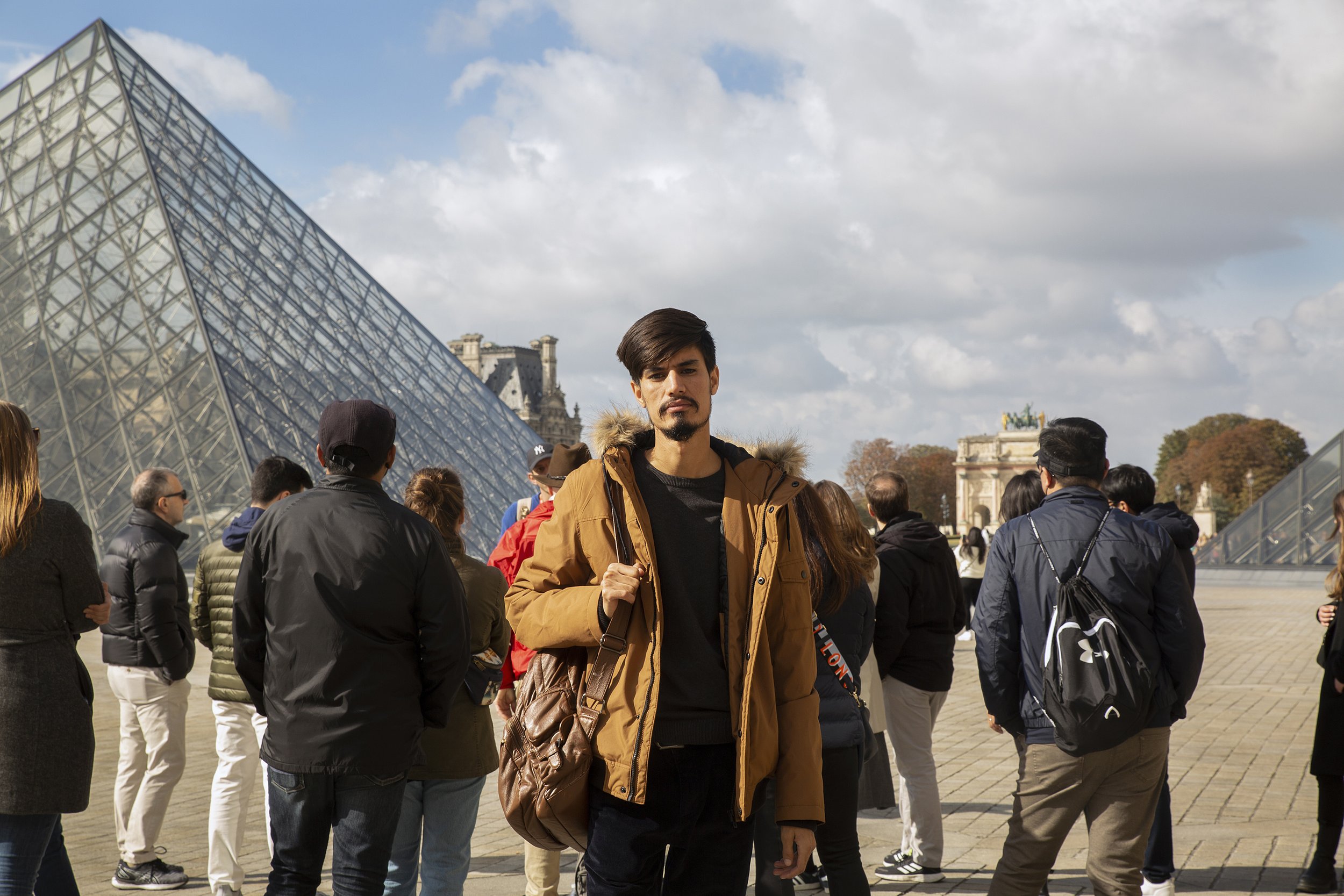Photo: Fatimah Hossaini
Transcript
You hear my voice as a witness.
My job is to witness what has happened to my people in this moment of history, and to emphasize that we must not stop our attempts to build a better world.
Did you know that all military, economic structures, and infrastructures of Afghanistan have collapsed again? And my country is alone in the face of this invasion.
Did you know that the terrorist Taliban have seized power in Afghanistan?
Taliban have revived their fundamentalist Islamic Emirate, and Afghanistan is alone in the face of this invasion.
But, do you know what, my friend?
I am hopeful about that country.
My hope lies with those youth who are being lashed now in Taliban prisons.
Because there are still those who are ready to suffer lashes for defending freedom. Bluish spots on the bodies of journalists, and the red blood flowing across pages of our history, proves that this battle will end with the victory of freedom.
Yes, terrorism defeated us with the assistance of major world powers and corrupt politicians. We were killed, we were suppressed, and we were assassinated by suicide attacks in the schools, universities, and markets. We were lashed in their prisons, we were massacred, we were forced out of our own country, but we still continue this battle. Resistance, and the fight for freedom are still sacred for us. We must not lose our last hope or abandon our dreams. And we want you not to lose your voice or abandon your rights.
At the moment I feel cruelty and aggression have spread everywhere. But, at the same time I invite you to resist. Resist against cruelty in any possible way. Undoubtedly, the light of freedom and justice will soon overcome the darkness of the Taliban.
I want you to know that Fatemeh Khalil’s family founded a school for disabled people in Kabul in her name after her assassination.
I want you to know that the mother of Mohammad Raed, a young man who was killed in the terrorist attack at Kabul University, has built a library in the name of her son.
I want you to know that Raheleh is one of the victims of war and there is now a school in Daykundi named for her.
I want you to know that last year, Altin Ay and his mother were killed in a terror attack along with several of their family members. But today, Altin Ay Valvalji is the name of a library in Takhar Province.
I want you to know that this is the story of the fight for freedom in Afghanistan, and this fight will never stop.
These victims have been lost to war. But we are still faithful to defend the right to free expression, right to education, right to vote, and the human rights of all citizens of our country. We ourselves are answering the search for happiness and freedom, and we will win this fight.
We will not miss any chance to spread our message, affirming our deep love of freedom, democracy, and human rights. We are many, and tomorrow is ours.
“Resistance, and the fight for freedom are still sacred for us. We must not lose our last hope or abandon our dreams. And we want you not to lose your voice or abandon your rights.”
Ramin Mazhar’s visceral speech shares the plight of human rights defenders in Afghanistan, many of whom were forced to flee the country following the Taliban’s takeover. Now in France as a refugee, Mazhar reflects on his continued hope for his home nation. Voiced in English by his friend Ashraf from within Afghanistan, Mazhar’s transmission fans the flames of resistance amid state repression.
Ramin Mazhar is, a poet, journalist, and human rights activist from Afghanistan. He graduated from the Persian and literature program at Kabul university and has worked for 8AM Daily Newspaper and Afghanistan Independent Human Commission.
Two years ago, during peace negotiation talks between the US government and the Taliban, Ramin organized and performed an art program at Kabul University in protest. He said to the audience that in those talks, victims of war, women, and Afghanistan are completely ignored. He also expressed the pain and frustration of millions of Afghans who thought that the peace talks would hand the country back to the Taliban, and that the progress over the last twenty years related to democratic values and basic human rights would be eliminated.
That program and protest gained lots of attention and support among media, policy makers and politicians.
“Kiss you amid the Taliban and you don’t fear,” one of Mahzar's highly political poems, which was posted on social media during those talks, was read and shared by millions of users in Afghanistan and Iran. His poem brought diverse social groups and activists together to work on supporting the voices of youth and victims of war so that they can be heard in peace talks and beyond.
Later the poem turned into a song by young singer Ghawgha Tanban. After her, a dozen other singers from Afghanistan and Iran sang the song to show their resistance and struggle against oppression and extremism. Mazhar’s poems have a huge audience in both Afghanistan and Iran, and often combine a mixture of love and protest against religious fundamentalism and war.
ASL Interpretation
ASL Interpretation by Canadian Hearing Services

